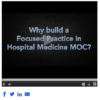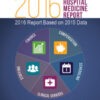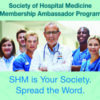More U.S. Babies Born Addicted to Opiates
(Reuters Health) – The proportion of U.S. babies born suffering from withdrawal syndrome after exposure to heroin or prescription opiates in utero has more than doubled in less than a decade, a study suggests.
Nationally, the rate of neonatal abstinence syndrome involving mothers’ use of opiates – which includes heroin as well as prescription narcotics like codeine and Vicodin – surged from 2.8 cases for every 1,000 births in 2009 to 7.3 cases for every 1,000 births in 2013, the study found.
At least some of this surge in the case count is due to drug policies designed to crack down on prescription drug abuse and combat the methamphetamine epidemic, said lead study author Dr. Joshua Brown, a pharmacy researcher at the University of Kentucky in Lexington.
“The drug policies of the early 2000s were effective in reducing supply – we have seen a decrease in methamphetamine abuse and there have been reductions in some aspects of prescription drug abuse,” Brown said by email. “However, the indirect results, mainly the increase in heroin abuse, were likely not anticipated and we are just starting to see these.”
The findings of the current study add to a growing body of evidence pointing to a surge in births of babies suffering from opiate withdrawal. One report last month from the U.S. Centers for Disease Control and Prevention found an even bigger spike over a longer period, from 1.5 cases for every 1,000 births in 1999 to 6 cases per 1,000 in 2013.
CDC researchers also found wide variation in neonatal abstinence syndrome by state, ranging in 2013 from 0.7 cases for every 1,000 births in Hawaii to 33.4 cases per 1,000 in West Virginia.
“We know that certain states are harder hit by the opioid/heroin abuse epidemic, with about 10 states contributing half of all neonatal abstinence syndrome cases,” Brown said. “These states are often more rural and impoverished areas of the U.S. such as Mississippi, Alabama, and West Virginia.”
Brown and colleagues looked at Kentucky in particular. Here, the rate of neonatal abstinence syndrome climbed from 5 cases for every 1,000 births in 2008 to 21.2 cases per 1,000 births in 2014, researchers report in JAMA Pediatrics, online September 26.
While the study didn’t look at health outcomes for babies born suffering from drug withdrawal, these infants often require intensive medical care. (See Reuters’ 2015 special report “Helpless and Hooked” here.)
These babies may have central nervous system issues like seizures and tremors, gastrointestinal problems and feeding difficulties, breathing challenges, as well as unstable body temperatures.
Typically, they remain in the hospital for several weeks after birth and receive low doses of methadone, Brown said.
Treatment can ease withdrawal symptoms in newborns, but can’t necessarily address developmental problems these infants may have later on, said Dr. William Carey, a pediatrics researcher at pediatrics at Mayo Clinic Children’s Center in Rochester, Minnesota.
“While abuse of prescription opiates has declined, the use of illicit opiates has increased such that there may be a zero-sum game at best,” Carey, who wasn’t involved in the study, said by email. “Since maternal use of either prescription opiates or illicit opiates is associated with withdrawal in newborns, it is reasonable to think that any increase in the overall use of opiates would be linked to an increase in the rate of neonatal abstinence syndrome.”


